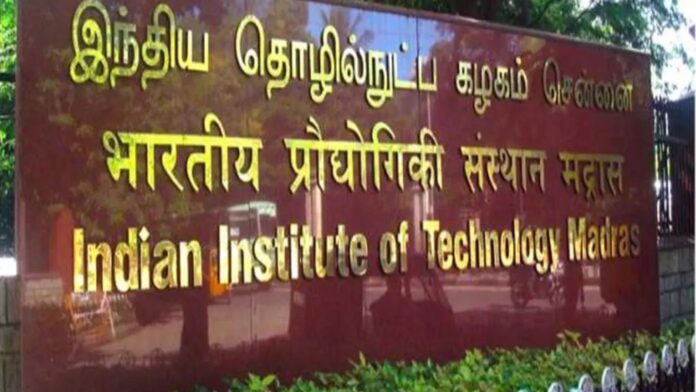A preliminary experiment conducted by Indian Institute of Technology (IIT) Madras researchers on students at Vana Vani Matriculation Higher Secondary School has sparked controversy, following a complaint lodged with the State Human Rights Commission (SHRC). The complaint alleged that students were subjected to unauthorised clinical trials in violation of the New Drugs and Clinical Trials Rules, 2019, and the Drugs and Cosmetics Act, 1940.
The study, which involved placing insoles inside students’ shoes, took place on August 19. According to a parent’s complaint, the trials were carried out without prior consent from parents. The secretary of the school’s managing committee later acknowledged that students participated in the trials on August 19, prompting the complainant to escalate the matter to the SHRC.
In response to the controversy, the IIT-Madras administration released a statement on Wednesday confirming the formation of a fact-finding committee to investigate the incident. The statement clarified that the purpose of the study was to assess the feasibility of a cost-effective smart insole assembled from commercially available components. According to IIT-Madras, the study did not involve clinical trials, medical devices, or the administration of any medicine or stimulants. The insoles were merely placed inside the students’ shoes to examine the ease of walking, with the process lasting less than 10 minutes per student. A commercially available smartwatch was also used to collect data.
“Neither clinical trials nor any medical-related device trials were conducted,” the institute stated. “Neither medicine nor stimulants were given. The assembled smart insole was placed inside the students’ shoes to study the ease of walking—the study lasted less than 10 minutes for each student—which had no contact with the human body.” The statement further asserted that this was simply a feasibility test and, according to the faculty involved, did not require parental permission.
Despite these clarifications, IIT-Madras acknowledged shortcomings in the process. The school management and IIT-Madras administration took the issue “very seriously” and consequently replaced the principal of Vana Vani Matriculation School. Additionally, the faculty members involved were reprimanded, and administrative action was taken for failing to ensure that parental consent was obtained. The feasibility study was immediately discontinued on August 19.
“No invasive procedures were performed, and no liquids or solids were administered to any of the students before or during the study,” IIT-Madras emphasized in its statement.
This incident has brought attention to the ethical considerations surrounding research involving minors, particularly in educational institutions. The involvement of students without parental consent has raised questions about the protocols and due diligence followed by the institution, even for feasibility studies that may not involve direct medical intervention.

